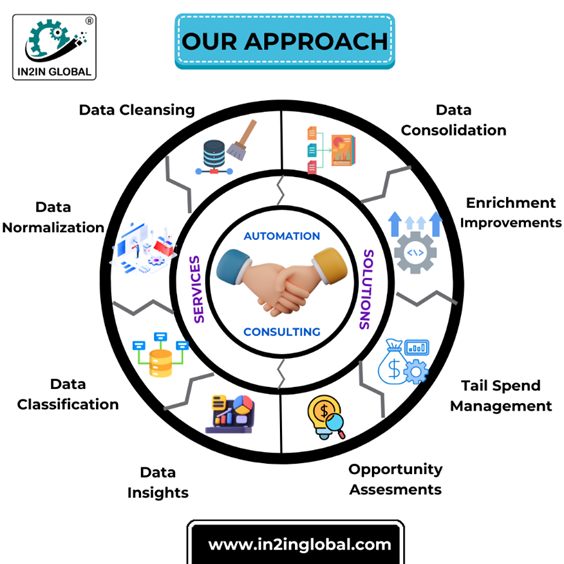"Meta Tag Optimization: How to Stand Out in the Digital Crowd"
Introduction:
In the vast and competitive landscape of the internet, having a well-designed and informative website is just the first step towards online success. To truly stand out and attract the right audience, it's crucial to focus on optimizing various elements, and one of the key aspects is meta tags. Meta tag optimization plays a significant role in enhancing your website's visibility and improving its performance on search engine result pages (SERPs). In this blog post, we will delve into the importance of meta tags and explore effective optimization techniques to boost your website's visibility.
"Unlocking the Power of Meta Tags Optimization: Boost Your Website's Visibility with Optimization Techniques"
Understanding Meta Tags:
Meta tags are snippets of HTML code that provide information about a webpage to search engines and website visitors. They don't appear on the page itself but are embedded in the page's source code. The most common types of meta tags include title tags, meta descriptions, meta keywords, and meta robots tags. Each of these serves a specific purpose in conveying information to search engines and influencing how your site is displayed in search results.
Title Tags:
Title tags are arguably the most critical meta tags for SEO. They provide a concise and accurate description of a webpage's content. Search engines use title tags to understand the topic of a page and display them as the clickable headline in the search results. When optimizing title tags:
a. Keep it concise: Aim for 50-60 characters to ensure that the entire title is visible on SERPs. b. Include target keywords: Incorporate relevant keywords naturally, reflecting the page's content. c. Maintain uniqueness: Avoid using duplicate titles across different pages to prevent confusion for search engines and users.
Example: For a blog post about meta tag optimization, a suitable title tag could be "Boost Your Website's Visibility with Effective Meta Tag Optimization Techniques."
Meta Descriptions:
Meta descriptions provide a brief summary of a webpage's content and are often displayed beneath the title tag in search results. While they may not directly impact search rankings, well-crafted meta descriptions can significantly increase click-through rates. When optimizing meta descriptions:
a. Be compelling: Craft a concise and engaging description that encourages users to click. b. Include a call-to-action: Encourage users to take a specific action, such as reading more or exploring your products. c. Use relevant keywords: Incorporate key terms that align with the page's content.
Example: "Learn how to enhance your website's performance on search engines with proven meta tag optimization techniques. Explore strategies to boost visibility and attract your target audience."
Meta Keywords:
While meta keywords were once a crucial aspect of SEO, major search engines like Google no longer consider them when ranking websites. However, some smaller search engines may still take them into account. It's essential to use them sparingly and focus on other meta tags for better optimization.
Meta Robots Tags:
Meta robots tags provide instructions to search engine crawlers on how to index and display your content. Common directives include "index," "no index," "follow," and "no follow." Proper use of meta robots tags can prevent specific pages from being indexed or control the flow of link equity throughout your site.
a. Indexing: Use "index" to allow search engines to include the page in search results. b. No index: Use "no index" for pages that you want to exclude from search engine indexes, such as thank-you pages or duplicate content. c. Follow and no follow: Control how search engines follow links on a page. Use "follow" to allow crawling of links and "no follow" to prevent search engines from following specific links.
Example: To prevent a page from being indexed, use <meta name="robots" content="no index, follow"> in the HTML header.
Advanced Meta Tag Optimization Techniques:
1.Schema Markup:
Schema markup, although not a traditional meta tag, provides additional context to search engines about the content on your page. It helps improve the display of your site's information in search results, creating rich snippets that can enhance visibility and click-through rates.
a. Use schema for different content types: Implement schema markup for articles, reviews, products, events, and more. b. Structured data: Ensure your structured data is accurate and follows schema.org guidelines.
Example: If you have a recipe page, use schema markup to provide information about ingredients, cooking time, and nutritional facts.
2.Open Graph Meta Tags:
Open Graph meta tags are essential for optimizing how your content appears on social media platforms like Facebook. They control the title, description, image, and other elements when a page is shared on social media.
a. Implement Open Graph tags in the head section of your HTML. b. Use high-quality images to attract attention when shared on social media .
Example: <meta property="og: title" content="Boost Your Website's Visibility with Meta Tag Optimization Techniques">.
3.Mobile Optimization:
With the increasing use of mobile devices, optimizing meta tags for mobile is crucial. Google prioritizes mobile-friendly websites in its rankings, making mobile optimization a key factor for SEO success.
a. Use responsive design: Ensure your website is accessible and user-friendly on various screen sizes. b. Optimize meta tags for mobile: Test how your title and description appear on mobile devices to ensure a positive user experience.
Example: Adjust the length of your title and meta description to fit well on mobile screens.
Conclusion:
In the ever-evolving world of SEO, meta tag optimization remains a fundamental and powerful strategy for boosting your website's visibility. By understanding the role of each meta tag and implementing advanced techniques like schema markup and Open Graph tags, you can enhance not only your search engine rankings but also the overall user experience. Keep in mind that SEO is an ongoing process, and regularly updating and refining your meta tags will contribute to sustained visibility and success in the highly competitive online landscape. Take the time to audit and optimize your meta tags, and watch as your website climbs the ranks and attracts the right audience.



Comments
Post a Comment